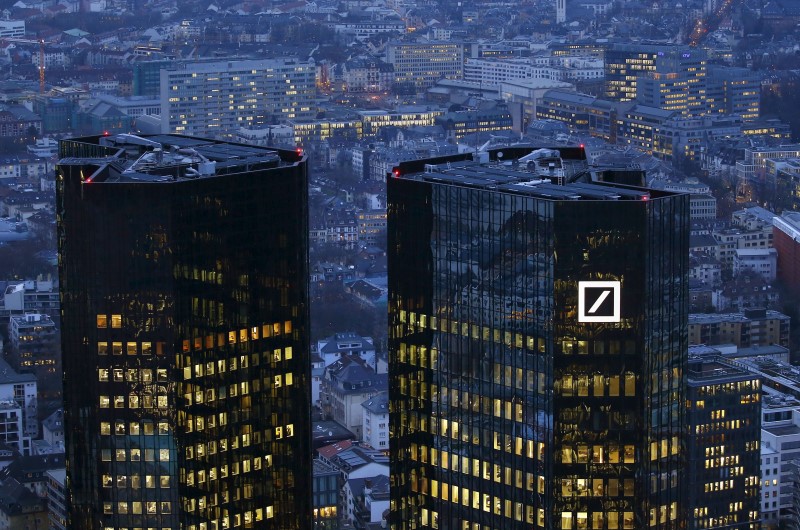By Marc Jones and John O'Donnell
LONDON/ FRANKFURT (Reuters) - Euro zone bank stocks dipped to near four-year lows on Thursday due to fears that a possible departure of Britain from the European Union would worsen their already dim prospects.
A regional index of euro zone banks (SX7E) fell to its lowest level since August 2012, while shares in Deutsche Bank (DE:DBKGn) hit a record low.
The slide underscores the challenge facing Europe's lenders, which are already grappling with billions of euros of loans that may never be repaid as the region's economies remain in the doldrums and unemployment stubbornly high.
Broader European financial stocks (SX7P) fell 1.4 percent bringing year-to-date losses to 27.5 percent, making them the region's worst performing sector.
Analysts said the latest share price dip was down to next Thursday's referendum in Britain on whether to leave the EU, with some polls suggesting the chances of a 'Brexit' are increasing.
"The global economic and political outlook is dark," said Chirantan Barua, an analyst with Bernstein. "Brexit is fuelling uncertainty and will have ripple effects across Europe. With so much uncertainty, why would you buy a bank stock now?"
Others echoed this view.
"The uncertainty is regarding the future of the UK in Europe but also probably regarding the future of Europe," said Barclays (LON:BARC) head of euro zone research Philippe Gudin de Vallerin.
"There is still some worry about banks and the extent to which banks have really been cleaned up and the possible reaction of banks to a UK exit."
The problems facing Europe's banks, however, go far deeper than Brexit. It has proved exceptionally hard, for instance, to kick-start borrowing in the euro zone because confidence has sunk to a low ebb and bad loans from the past are piled high.
Earlier this week, Yves Mersch, one of the European Central Bank's top officials, summarised the problems of the sector after the financial crisis. "We all want stability, but we should not want the stability of the graveyard."
Rating downgrades are also a threat. A Standard and Poor's model using Credit Default Swaps (CDS) shows that, over the last week, financial markets have started pricing Deutsche Bank's debt as if it were 'junk' grade.

While the bank's official credit rating does not have such a low status, the cost of insuring against a default on its debt, as measured by the CDS price, shows that investors see a higher risk of not getting repaid.